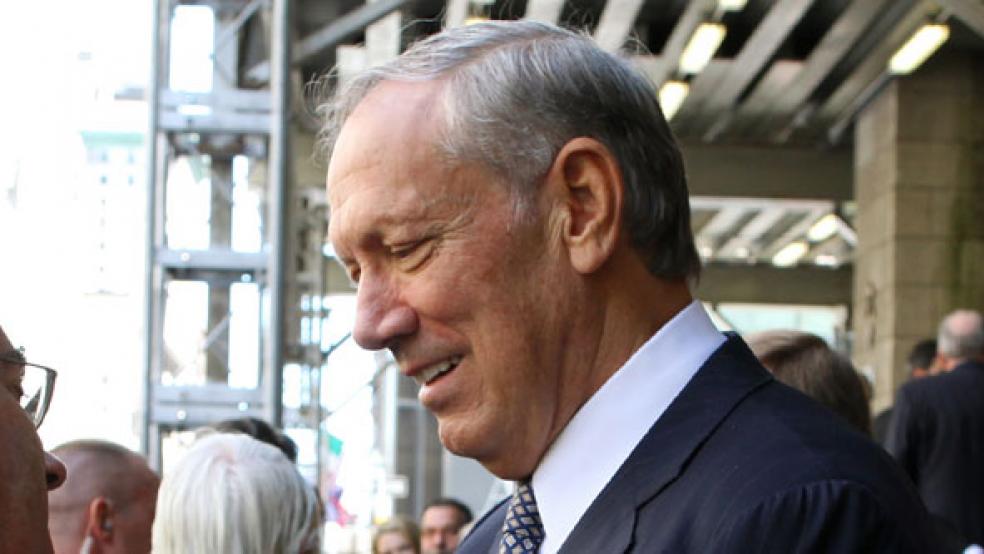Former New York governor George Pataki will not seek the Republican presidential nomination, he announced on Friday. Pataki had previously told The Fiscal Times that he was “seriously considering” a run for the White House. He said he willwould continue to speak out about the urgent need to get the country’s federal debt under control at this critical time for the American economy.
“Earlier this year I launched No American Debt to put a focus on our debt crisis,” Pataki said in a statement on Friday. “President Obama and his misguided policies are bankrupting America, stealing from our children’s future, and he must be defeated next November. It is incumbent on our party to come forward with serious solutions to preserve our future and ensure America’s continued greatness.”
The fiscally conservative, socially progressive former governor, who served three consecutive terms in Albany from 1995 to 2006, had traveled to the critical campaign states of New Hampshire and Iowa in the last few months, meeting with key officials and speaking to audiences about the country’s fiscal and economic challenges. He had also been planning another trip to Iowa this weekend but canceled those plans.
“The failures of this administration, even after repeated examples of the terrible consequences of their wrong policies – and the fact that we don’t see yet a Republican candidate with a pro-growth, pro-jobs agenda who also shows how that person would control government spending and entitlements – certainly [made] me lean towards making [a] decision [about running],” he said earlier in an interview.
Pataki has been serving as chair of the non-profit organization No American Debt, which seeks to educate Americans about the ills of deficits and debt. Earlier this month he said, “This country is spending itself off a cliff. We’re in the midst of a debt crisis, a fiscal crisis, and this President has failed to provide leadership when it comes to reining in spending and curtailing entitlements appropriately.”
But Pataki also acknowledged that GOP presidential candidates could not make any real political headway by simply criticizing Obama and his administration. “I don’t think we should nominate someone simply based of the failure of the other side,” he said. “We have to have our own proactive positive agenda as to how we will balance the budget, grow the economy, and move forward with confidence. And I have not seen that from one of our candidates yet. I am still looking.”
When asked recently if the S&P downgrade of the U.S.’s long-term debt was fair, Pataki replied, “What is fair is to point out that this country is spending itself off a cliff. When you’re borrowing 42 or 43 cents of every dollar that you spend, ultimately, whether it’s today, next year, or a decade from now, you are broke. It’s that simple. And whether it’s fair or not fair, what [Standard & Poor’s] has done is point out what everyone knows: This country is in the midst of a debt crisis, a fiscal crisis, because of …an unwillingness on the part of the president and what had been the controllers of Congress since 2006 to do anything serious to rein in unsustainable spending and borrowing.”
Pataki also said in his statement this weekend, “Throughout the coming months I will remain active in this important discussion and support the candidate who offers the vision, the ideas and the leadership to bring an end to America’s debt crisis.”
Other points Pataki has made in recent interviews:
* “Obamacare has imposed enormous new costs and regulations and uncertainty on small and large businesses, and has been so politically driven. We need to repeal it.”
* “We didn’t need to drive banking jobs offshore, overstepping the boundaries with Dodd Frank. We didn’t need a trillion-dollar so-called fake stimulus program that just added to the debt and didn’t in any way, in my view, significantly impact economic growth.”
* “[Obama] has had exactly the wrong economic policies. We don’t just have a spending and a debt problem – we have a growth problem.”




